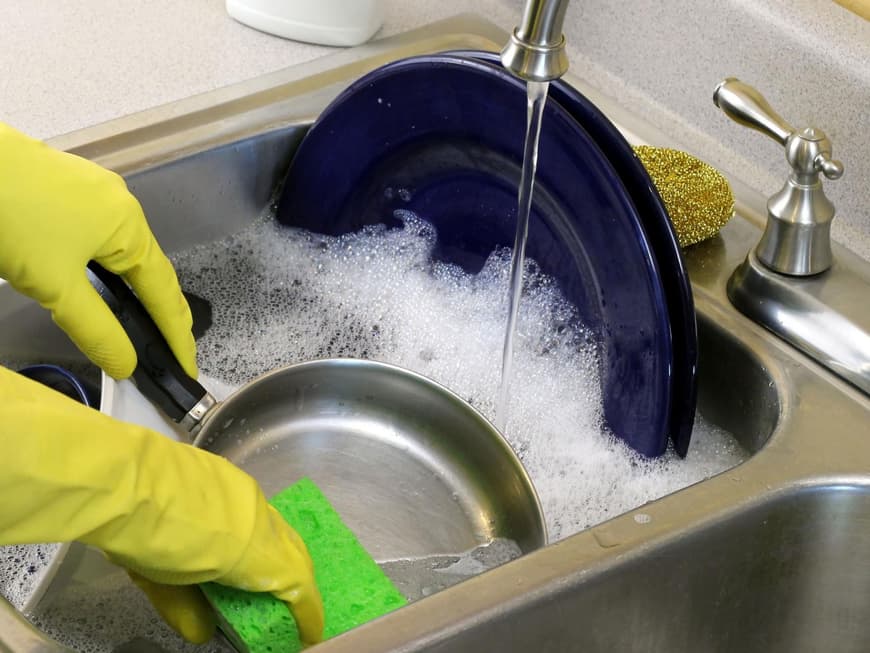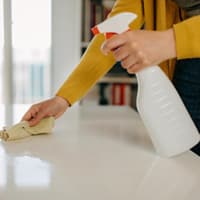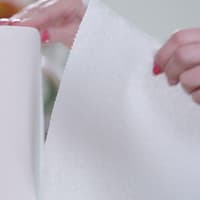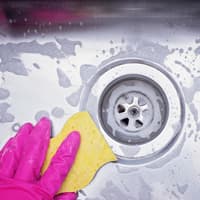
Although almost every household has a dishwasher, not everything can be washed by machine. Wooden boards, baking tins, burnt pots - this is where the housewife gets to grips with dirt or delicate materials using washing-up liquid and a brush. Expectations of washing-up liquid are high: it should be environmentally friendly, but also have a strong cleaning power. After all, you want to do the annoying washing up without a lot of scrubbing. Unfortunately, the latest Öko-Test result (June 2018 edition) puts a spanner in the works, as the exact opposite is the case.
Dishwashing liquid in the check: the test result
Öko-Test tested the products for questionable ingredients - this is what the institute stands for. To this end, the stain removal and cleaning performance were scrutinized in a manual rinse cycle.
- "Fairy Ultra Plus Concentrate Villariba Edition Original" received the grade "good" - the only one of 21 products tested!
- 13 dishwashing detergents were "satisfactory" or "sufficient", including "Denk mit Spülmittel Ultra Konzentrierte Formel" or "Frosch Himbeer Spül-Gel"
- 7 products were "poor" or "unsatisfactory", including "Fit Original höchste Spülkraft" or "Blink Spülmittel Classic". Ecological products such as "Almawin Dishwashing Liquid Lemongrass Concentrate" and "Sodasan Ecological Dishwashing Liquid Lemon" received a poor rating due to their rinsing performance.
Questionable ingredients in conventional washing-up liquids
Two-thirds of the products tested contain allergenic isothiazolinones. They also contain PEG/PEG derivatives: Surfactants are used for simple cleaning and to bind grease in water. Despite their high effectiveness, surfactants have long been controversial because they make the skin permeable to harmful substances. According to EU regulations, only surfactants that break down by themselves after 28 days may be used - but why pollute yourself and the environment unnecessarily? Fragrances are also problematic because they can affect our hormone balance. They are also difficult to break down or filter out of the water. Öko-Test therefore advises using conventional washing-up liquids very sparingly and wearing gloves when washing up. This applies in particular to concentrates, where just a few drops are enough.
Which washing-up liquid to use now?
The disappointing conclusion is that eco-dishwashing liquids and high cleaning performance don't really go together. However, for the sake of your health and the environment, continue to use eco-dishwashing liquid, even if you have to scrub a little more! Involve your partner and family more often so that you don't have to do all the work yourself. Kitchen tip: Clean with orange peel!






